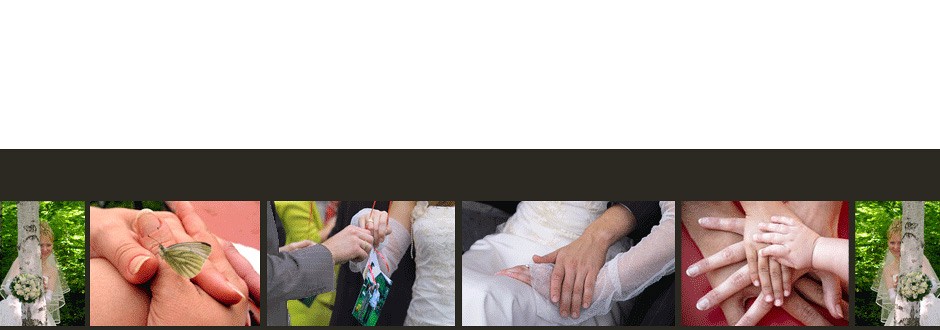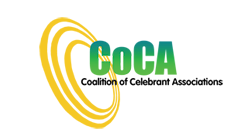31 Applicant may be refused registration in certain circumstances
(1) A Registrar to whom an application for registration under this Subdivision is made may refuse to register the applicant if, in the opinion of the Registrar:
(1) A Registrar to whom an application for registration under this Subdivision is made may refuse to register the applicant if, in the opinion of the Registrar:
Conflict of Interest is a principle of concern in a profession, where the office-holder/professional has a duty of care:
There appears to be 6 main principles to apply in making a decision about Conflict of Interest:
For example, clergy do other counselling services, marriage preparation, values and ethics education, pastoral care, teaching etc.
If a line needs to be drawn somewhere, we need to model “Marriage Celebrancy” on the Clergy, not Small Business, nor the Law.
Divinity, like Law, is one of the oldest “professions”. See below.
For the long term common good of our professional development, the civil celebrant needs to be more aligned with the clergy than with lawyers – who these days are seen as a rather “money” oriented lot.
The Regulation Impact Statement coming from a “Law” perspective aligns civil celebrants with the “Migrant Agents” perhaps because the Attorney General Department is focused upon matters of law.
However, the beauty of the marriage ceremony is primarily about the celebration of “love”, (clergy) not about being tied up in knots about the legal words (lawyers).
It is “love” that is the focus of the celebrants work – whether one has a “God is Love” focus as the religious clergy do, or whether is the “Love of one’s fellow human being” as the humanitarians do.
CoCA has already submitted a paper on its Position of Conflict of interest in response to a request for comment from the Marriage Law and Celebrant Section.
- to put the client’s needs or some other authority’s needs before their own,
- to be able to offer impartial advice, and
- to not use the relationship developed in their other work, where power relationships have developed (ie where free and informed consent is hampered) for financial or other benefit. See the Wikipedia references below.
- to use business skills for the efficient and effective management of their professional independent celebrancy practice, but not to exploit their professional role to offer unnecessary or unrelated products or services.*
(Yes marriage celebrants, like other professionals need business skills, but that does not make them “just a business”.)
NB Conflict of Interest is not an issue for businesses, where it’s “buyer beware”.
There appears to be 6 main principles to apply in making a decision about Conflict of Interest:
- The benefit from another activity may outweigh the benefit to the public of the celebrant role (esp. financially).Thus the celebrant could be tempted to take shortcuts or to act illegally.
For example; $ 2,000 profit from a reception booking vs $500 for the wedding. Thus back- dating; not checking documents thoroughly etc. may be a way of securing the booking. - A professional is expected to be impartial in advice/ service giving. Thus the celebrant needs to be at arm’s length to related activities.For example; The celebrant is the Function Manager at an RSL Club or owner of reception house. The celebrant may receive a commission for every wedding reception referred to the Club or Reception House, and thus promotes that function centre over another – when the couple’s expectation is that they are receiving “impartial” advice.
Having relatives or friends in the wedding industry can make the task of being “impartial” very difficult eg advice giving about other wedding related services Here the rewards may not be financial – it may be peace of mind that your son or daughter is in a secure job. Though it could be financial – ie if they don’t have employment then the celebrant may have to support them. - Free and informed consent to choose any celebrant could be hampered by the actions of the celebrant’s other activities.For example, where a celebrant works for a company providing wedding services and the celebrant’s services are part of the wedding package. The classic example is where the holiday resort / island will only allows “its own” celebrants to be part of their wedding package.They may also charge more, when “their celebrants” are not used, effectively giving a “bribe” to take theirs. Such celebrants then can be pressured to back-dating; not check documents thoroughly etc. for fear of losing that work. This concept of a “bribe” – choose your floral needs from my florist business (car hire, catering, hair-dressing etc) and I’ll give you a discount on being your wedding celebrant, ie the couple is not really ‘free to choose’ because they are being bribed to do otherwise. And thus as Guideline 1 the celebrant may take shortcuts or act illegally.
- A professional is expected to have some altruistic motive involved in their work.Being in service to others and / or to one’s community is the common thread in professions, not doing work “just for the money”. Giving referral advice about relationship education, and resources for a fulfilling marriage are part of the marriage celebrants’ role. Thus less altruistic rewards from other wedding related work could undermine this aspect of the Marriage Celebrant’s role.
- The celebrant’s other activities or roles may impact on their ability to fully and competently prepare and deliver the marriage ceremony.Related wedding activities are more likely to affect the celebrant’s role as they often occur near the time of the wedding. For example, playing the harp may mean not being able to see all the guests and thus, not to be alerted to the fact that one of the witnesses has left to go to the toilet. Driving the limousine or doing photographs before the wedding, increases the chances of being late, and distracted from concentrating on one’s pre-ceremony tasks, like checking all the paperwork etc.
- The other activities of the professionals can harm the public perception of the impartiality of the profession.If the Government continues to appoint people who own or are employed by wedding related businesses, then the public confidence in the impartiality of marriage celebrant services is likely to fall. Whether we like it or not, the wedding industry is viewed as “money” oriented – recent studies showed that the price of the same services / product rose, if the word “wedding” came into the quote.
For example, clergy do other counselling services, marriage preparation, values and ethics education, pastoral care, teaching etc.
If a line needs to be drawn somewhere, we need to model “Marriage Celebrancy” on the Clergy, not Small Business, nor the Law.
Divinity, like Law, is one of the oldest “professions”. See below.
For the long term common good of our professional development, the civil celebrant needs to be more aligned with the clergy than with lawyers – who these days are seen as a rather “money” oriented lot.
The Regulation Impact Statement coming from a “Law” perspective aligns civil celebrants with the “Migrant Agents” perhaps because the Attorney General Department is focused upon matters of law.
However, the beauty of the marriage ceremony is primarily about the celebration of “love”, (clergy) not about being tied up in knots about the legal words (lawyers).
It is “love” that is the focus of the celebrants work – whether one has a “God is Love” focus as the religious clergy do, or whether is the “Love of one’s fellow human being” as the humanitarians do.
CoCA has already submitted a paper on its Position of Conflict of interest in response to a request for comment from the Marriage Law and Celebrant Section.
- Ensuring stricter Conflict of Interest Guidelines would increase professionalism and decrease the number of people entering celebrancy, who assume they can combine a wedding related industry function with being a marriage celebrant.
- In turn, well publicized clearer guidelines should assist in reducing the MLCS workload in doing individual determinations on every application.
Read more … see TABLE OF CONTENTS
* This sentence added later to better express the point being made.
4.1 Fit and Proper Persons
The aim of this recommendation is to determine the suitability of the applicant for the profession PRIOR to commencing any course of celebrant training.It is recommended that some parts of the current Fit and Proper Person criteria be applied to those wishing to become civil celebrants.
This would involve gaining information on:- The reasons the applicant wants to be a marriage celebrant,
- What knowledge, skills and personal strengths the applicant would bring to the role,
- Their understanding of the need for a professional attitude to the work, and;
- Their levels of literacy and numeracy.
- Applicants can make an informed decision about this career choice. (Not all Registered Training Organisations (RTO)’s highlight the disadvantages of being a marriage celebrant).
- Applicants are clear about the importance of the role, including ‘Conflict of Interest’ provisions.
- There would be a reduction of the time and money used by MLCS in approving appointees that are likely to be unsuitable, and
- There would be a reduction of the time and money wasted by applicants being trained for a role for which they are unsuitable.
Cost Recovery
It is envisaged that full cost recovery would be obtained from the pre-training and appointment process. The person seeking the training and subsequent appointment would pay a fee for this determination.
4.2 Implement a Suitability Course.
It is recommended that consideration be given to develop and implement a suitability course.
CoCA has commenced discussion with Australian Skills Quality Authority (ASQA) on this concept. It may be smilar to the suitability course provided to other professions such as the police. According to ASQA, some regulated industries, such as Security, require an applicant to pay a fee at application for a criminal check (along with other requirements.)Given that the Certificate IV qualification when taught properly is a big investment in time and money, an applicant who was not suitable would be saved the expense and time of the training. It would also increase the chances that a successfully trained celebrant would then offer a range of ceremonies to support their civil marriage celebrant role.
Cost Recovery
It is envisaged that full cost recovery would be obtained from the applicant at various stages of the pre-training and appointment process. The person seeking the training and subsequent appointment would pay a fee to complete the suitability course.
Read more … see TABLE OF CONTENTS
CoCA recommends that the following 6 main principles be used by MLCS in the consideration of Conflict of Interest:
- A professional is expected to be impartial in advice/ service giving. Thus a celebrant needs to be at arm’s length from any related activities.
- The other activities of a professional can harm the public perception of the profession.
- Free and informed consent to choose a celebrant must not be hampered by the actions of the celebrant’s other activities.
- A celebrant’s other activities or roles must not impact on their ability to fully and competently prepare and deliver a marriage ceremony.
- The benefit from another activity must never outweigh the benefit from the celebrant role (esp. financially), tempting the celebrant to take shortcuts or to act illegally.
- A professional is expected to have some motive involved in their work, beyond their
own personal needs celebrant.
Cost Recovery
If clearer and stricter guidelines were available and implemented, then the time spent by the MLCS in answering enquiries, appointing celebrants and monitoring their compliance and dealing with complaints would be minimized. Thus cost recovery expenses would impact less on celebrants and marrying couples.
Read more … see TABLE OF CONTENTS


